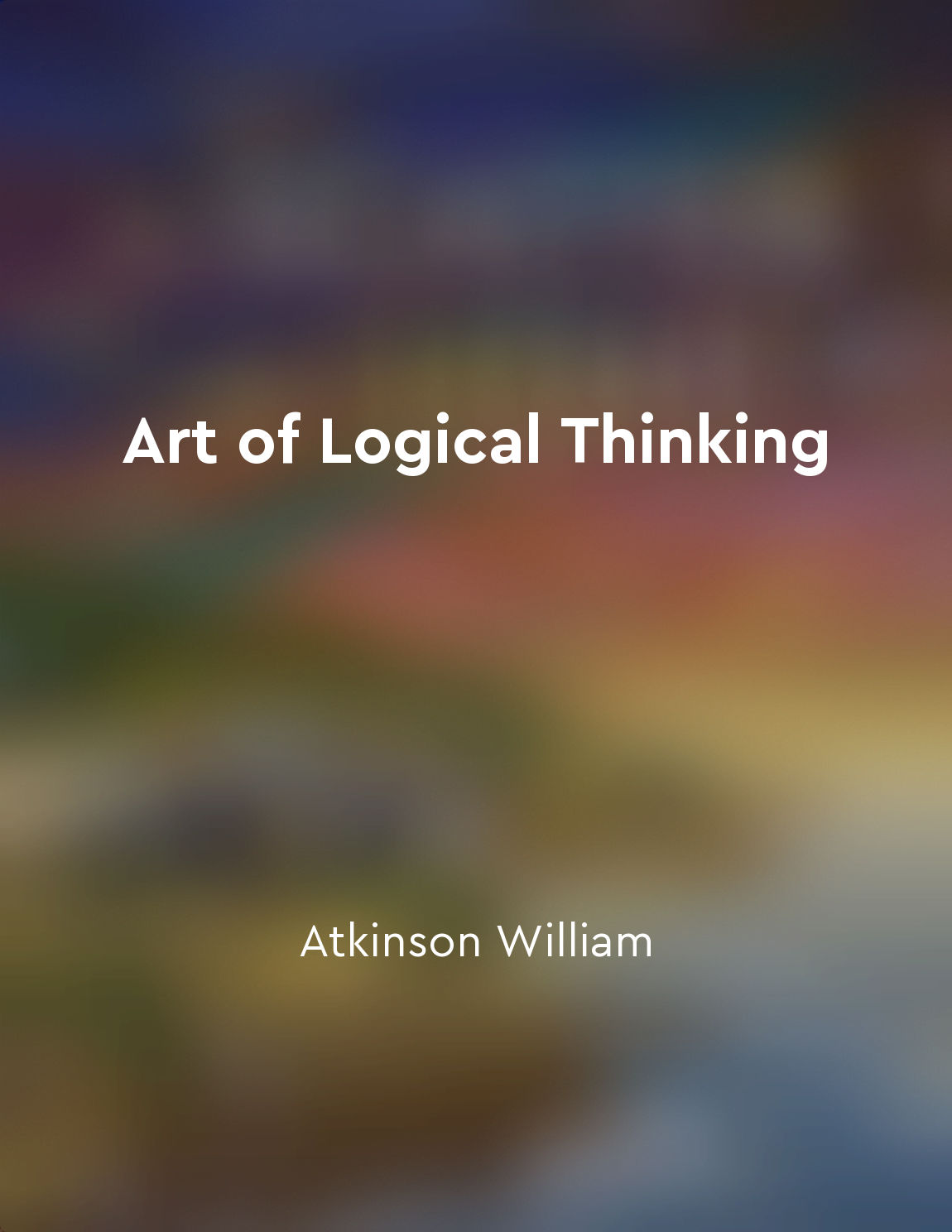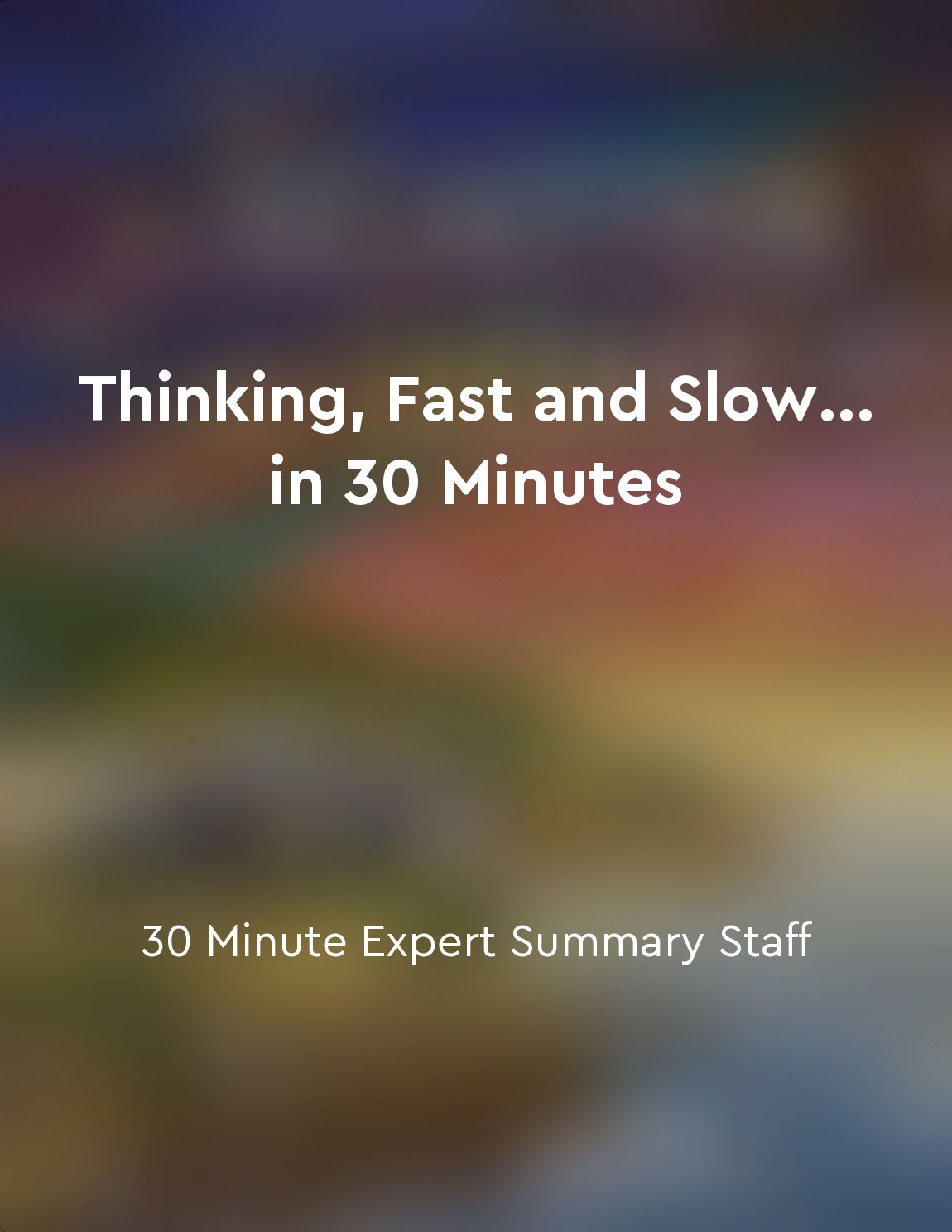Awareness of biases improves decisionmaking from "summary" of Thinking, Fast and Slow... in 30 Minutes by 30 Minute Expert Summary Staff
The idea behind the concept is that by being aware of our biases, we can make better decisions. Biases are inherent in the way we think and can often lead us astray. However, by recognizing when our biases are at play, we can take steps to counteract them. Our brains are wired to take shortcuts when processing information. These shortcuts can lead to biases, as we rely on heuristics to make decisions quickly and efficiently. While this can be useful in some situations, it can also lead to errors in judgment. By becoming aware of our biases, we can pause and reconsider our decisions. This allows us to take a more rational approach and consider all available information before coming to a conclusion. In doing so, we are less likely to be swayed by our biases and more likely to make sound decisions. One way to become more aware of our biases is to engage in reflection and self-assessment. By examining our thought processes and being honest with ourselves about our tendencies, we can begin to recognize when bias may be influencing our decisions. Another way to improve decision-making is by seeking input from others. By consulting with those who have different perspectives and experiences, we can gain valuable insights that may challenge our biases and help us make more informed choices.- The key to improving decision-making is to be mindful of our biases and actively work to counteract them. By doing so, we can make more rational and objective decisions that are less likely to be influenced by our inherent biases.
Similar Posts
Mentorship plays a vital role in empowerment
Mentorship is a powerful tool that can transform lives. When someone takes the time to guide, support, and encourage another pe...
Thaler advocates for libertarian paternalism
Thaler's idea of libertarian paternalism is about guiding people towards making better decisions without restricting their free...

Critical thinking enhances decisionmaking
Critical thinking is an essential tool for making sound decisions. When faced with a complex problem or situation, critical thi...
Rational decisionmaking requires systematic analysis
Systematic analysis is essential for making rational decisions. This means breaking down a problem into smaller components and ...
Practicing empathy towards others can deepen your mind reading abilities
When you open your heart to understanding the emotions of others, you are actually sharpening your ability to read their minds....
Be willing to apologize and make amends when necessary
When you realize you've made a mistake or hurt someone, it's crucial to take responsibility for your actions. This means being ...
Committed teams excel due to shared purpose and values
When teams align around a common purpose and values, they unlock a unique potential that transcends individual capabilities. Th...
Listening actively fosters understanding and connection
Active listening is like a superpower. It's not just about waiting for your turn to speak, but about truly absorbing what the o...
Endowment effect makes investors overvalue assets they already own
The endowment effect is a psychological phenomenon that causes people to place a higher value on objects they already possess c...
Building resilience to overcome challenges and setbacks
In a rapidly changing world, individuals and organizations must be prepared to face challenges and setbacks. This requires buil...


